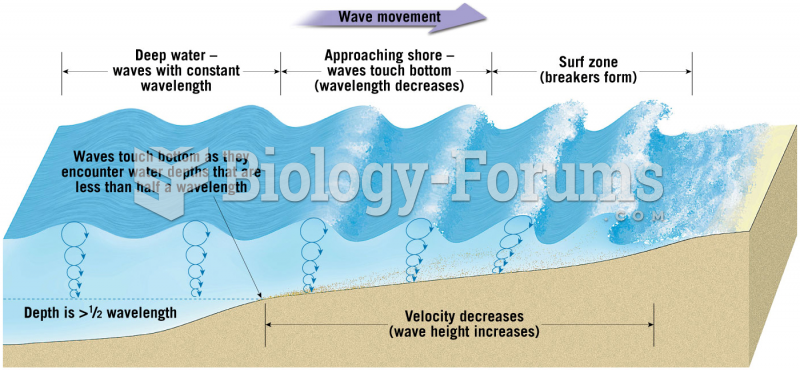|
|
|
Though the United States has largely rejected the metric system, it is used for currency, as in 100 pennies = 1 dollar. Previously, the British currency system was used, with measurements such as 12 pence to the shilling, and 20 shillings to the pound.
The lipid bilayer is made of phospholipids. They are arranged in a double layer because one of their ends is attracted to water while the other is repelled by water.
When blood is deoxygenated and flowing back to the heart through the veins, it is dark reddish-blue in color. Blood in the arteries that is oxygenated and flowing out to the body is bright red. Whereas arterial blood comes out in spurts, venous blood flows.
More than 20 million Americans cite use of marijuana within the past 30 days, according to the National Survey on Drug Use and Health (NSDUH). More than 8 million admit to using it almost every day.
Liver spots have nothing whatsoever to do with the liver. They are a type of freckles commonly seen in older adults who have been out in the sun without sufficient sunscreen.
 Simple food web of an Arctic island. NOTE: The indication of detritivores and pathogens was not part
Simple food web of an Arctic island. NOTE: The indication of detritivores and pathogens was not part
 Percutaneous ultrasonic lithotripsy. A nephroscope is inserted into the renal pelvis, and ultrasound
Percutaneous ultrasonic lithotripsy. A nephroscope is inserted into the renal pelvis, and ultrasound




